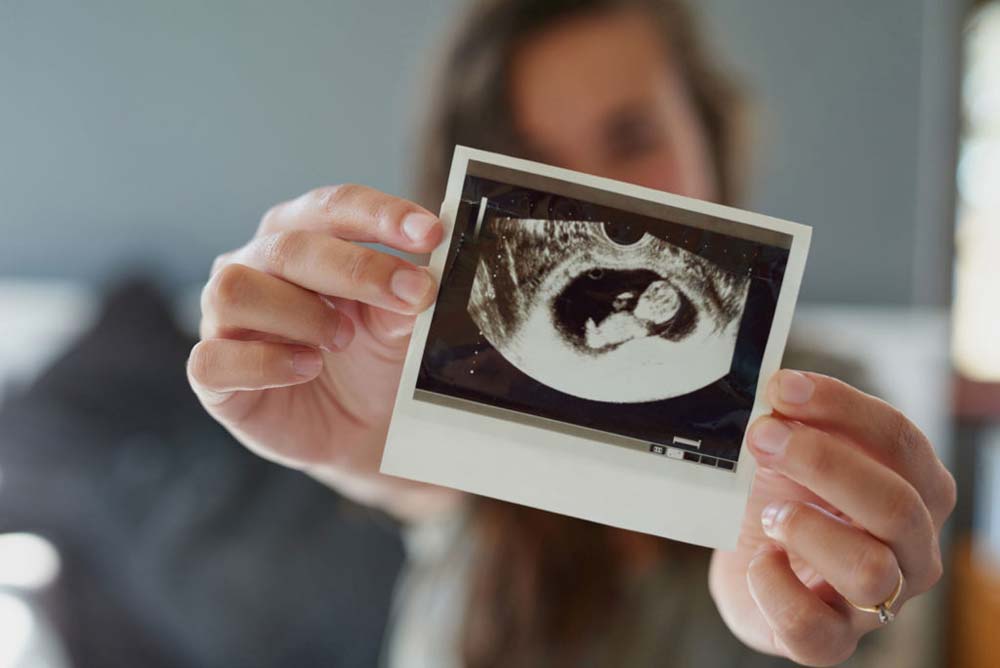Maximize Your Chances of Pregnancy with Blastocyst Transfer
Your Path to Parenthood. Tailored IVF Solutions for Fertility Challenges, Backed by Expertise and Compassion with Midwest Fertility Center.






In Vitro Fertilization (IVF) offers hope for many couples struggling to conceive.
However, the journey doesn't end with embryo creation.The next step - embryo transfer - plays a crucial role in achieving a successful pregnancy. Here at Midwest Fertility Center, we believe blastocyst transfer can significantly increase your chances of becoming a parent.
To see if Blastocyst Transfer is right for you, schedule a consultation.

More selective transfer, potentially leading to higher pregnancy rates and fewer multiples .
Blastocysts develop for 5-6 days after fertilization, mimicking the natural implantation process.Blastocyst transfer involves transferring a more mature embryo, called a blastocyst, into the uterus.
Schedule a consultation to learn about all Blastocyst Transfer and all your fertility options.

Are you dreams of parenthood unfilled?
Inspire Your Parenthood Aspirations With Blastocyst TransferIVF with Dr. Amos E. Madanes is not just a treatment; it’s a promise of our support throughout your fertility journey. Our personalized care and cutting-edge techniques empower you to know we will work together to give you the best chances of turning your dreams into reality, offering renewed hope for a future filled with the laughter and love of your own family. Dr. Amos E. Madanes is here to help. Schedule a consultation
Your Future Family Depends on Working With The Best
The first ever pregnancy in the United States to result from a non-surgical intra-tubal insemination procedure was achieved by Dr. Amos E. Madanes in December 1989. The incredible results of his technique has been brining new hope to couples for the last three and a half decades.
Dr. Amos E. Madanes has developed several revolutionary assisted-reproduction procedures and has come to be known as an innovator and leader.
Don’t let inaction turn into regret.
For decades Dr. Amos E. Madanes has helped hundreds of couples with fertility issues become parents with IVF.
At Midwest Fertility Center we know that you want to become a parent or grow your family. You have love to share with a child and in order to do that you need to conceive and have a successful pregnancy, one that ends with a new baby in your arms. The problem is that you’ve had difficulty getting pregnant or know you have complications which makes you feel hopeless. We believe that every women should be given the best chances of achieving a successful pregnancy. We understand that the IVF process can be scary and create fear around the costs involved which is we we work both emotionally and financially with each of our patience. Here’s how we do it together:
- Schedule a Consultation to learn if you are a good candidate for Blastocyst Transfer or what alternative solutions may be available to you
- We will provide you world-class and award-winning care throughout your fertility journey
- Know that you’ve given your family the best chances at adding one more.
So Schedule a consultation. And in the meantime you can stop flipping between hope and fear and instead start planning.

blastocyst transfer
Here's how blastocyst transfer can address specific concerns for IVF patients
Our experienced team of embryologists carefully monitors embryo development and determines the optimal timing for blastocyst transfer.
Blastocyst Transfer
Reduced Risk of Multiple Pregnancies With Blastocyst Transfer
Traditional embryo transfers often happen at an earlier stage, increasing the likelihood of multiples. Blastocyst transfer allows for a more selective approach, minimizing the risk of triplets or quadruplets.
Blastocyst Transfer
Improved Implantation Success Rates
Blastocysts are more developed and have a higher chance of successful implantation compared to earlier-stage embryos. This can be especially beneficial for patients with a history of implantation failure.
Blastocyst Transfer
Personalized Approach to IVF
Not all embryos develop at the same pace. Blastocyst transfer allows us to choose the most viable embryos for transfer, optimizing your individual chances of success. Let Midwest Fertility Center help you navigate your family-building journey with confidence.
What our patients are saying
Does it really work? Will it work for me?
The first step for those considering Blastocyst Transfer is a Consultation with Dr. Amos E. Madanes
We believe in a personalized approach and will guide you through every step of the process, ensuring you have all the information and support you need.
Blastocyst transfer can be a powerful tool in maximizing your chances of a successful IVF cycle. Let Midwest Fertility Center help you navigate your family-building journey with confidence.
Schedule a consultation with our fertility specialists today to discuss if blastocyst transfer is the right option for you. We're here to answer your questions and support you on your path to parenthood.
The IVF With Blastocyst Transfer Procedure
In Vitro Fertilization (IVF) with blastocyst transfer is a multi-step process that helps couples struggling with infertility conceive a child. Here's a breakdown of the key stages:
1. Stimulation and Egg Retrieval:
Fertility medications are used to stimulate the ovaries, encouraging them to produce multiple mature eggs.
Once the eggs are mature, a minimally invasive procedure guided by ultrasound retrieves them from the ovaries.
2. Fertilization and Embryo Culture:
The retrieved eggs are combined with sperm in a laboratory dish, aiming for fertilization.
If fertilization is successful, the resulting embryos are monitored and cultured for several days.
3. Blastocyst Development:
Unlike traditional IVF which transfers embryos at an earlier stage (3-5 days after fertilization), blastocyst transfer allows for extended embryo development (5-6 days).
During this extended culture period, embryos develop into blastocysts, which are more mature and closely resemble naturally conceived embryos that have implanted in the uterus.
4. Blastocyst Selection and Transfer:
Embryologists carefully assess the developing embryos and choose the healthiest blastocyst(s) for transfer.
A thin catheter is used to gently transfer the chosen blastocyst(s) into the woman's uterus, mimicking the natural implantation process.
5. Implantation and Pregnancy:
The transferred blastocyst hatches from its outer shell and implants in the uterine lining if conditions are favorable.
A successful implantation leads to pregnancy, and the woman will undergo regular checkups to monitor its progress.
Benefits of Blastocyst Transfer:
Increased Implantation Rates: Blastocysts are more developed and have a higher chance of successful implantation compared to earlier stage embryos.
Reduced Risk of Multiples: Traditional IVF transfers often happen at an earlier stage, increasing the likelihood of multiples. Blastocyst transfer allows for a more selective approach, minimizing the risk of triplets or quadruplets.
Improved Selection Process: By allowing more time for development, blastocyst transfer allows embryologists to choose the most viable embryos for transfer, potentially leading to higher pregnancy success rates.
Overall, IVF with blastocyst transfer offers a more advanced approach to IVF, potentially increasing the chances of a successful pregnancy for couples facing infertility.
The Success of IVF With Blastocyst Transfer
The success of IVF depends upon a number of factors, such as the age of the patient, the quality of sperm and eggs, the health of the woman’s uterus, and the duration of infertility. Successful pregnancy following IVF can be determined through blood tests performed approximately 13 days following the procedure or by ultrasound after 30 to 40 days. Please contact our office for specific details on IVF success rates.

